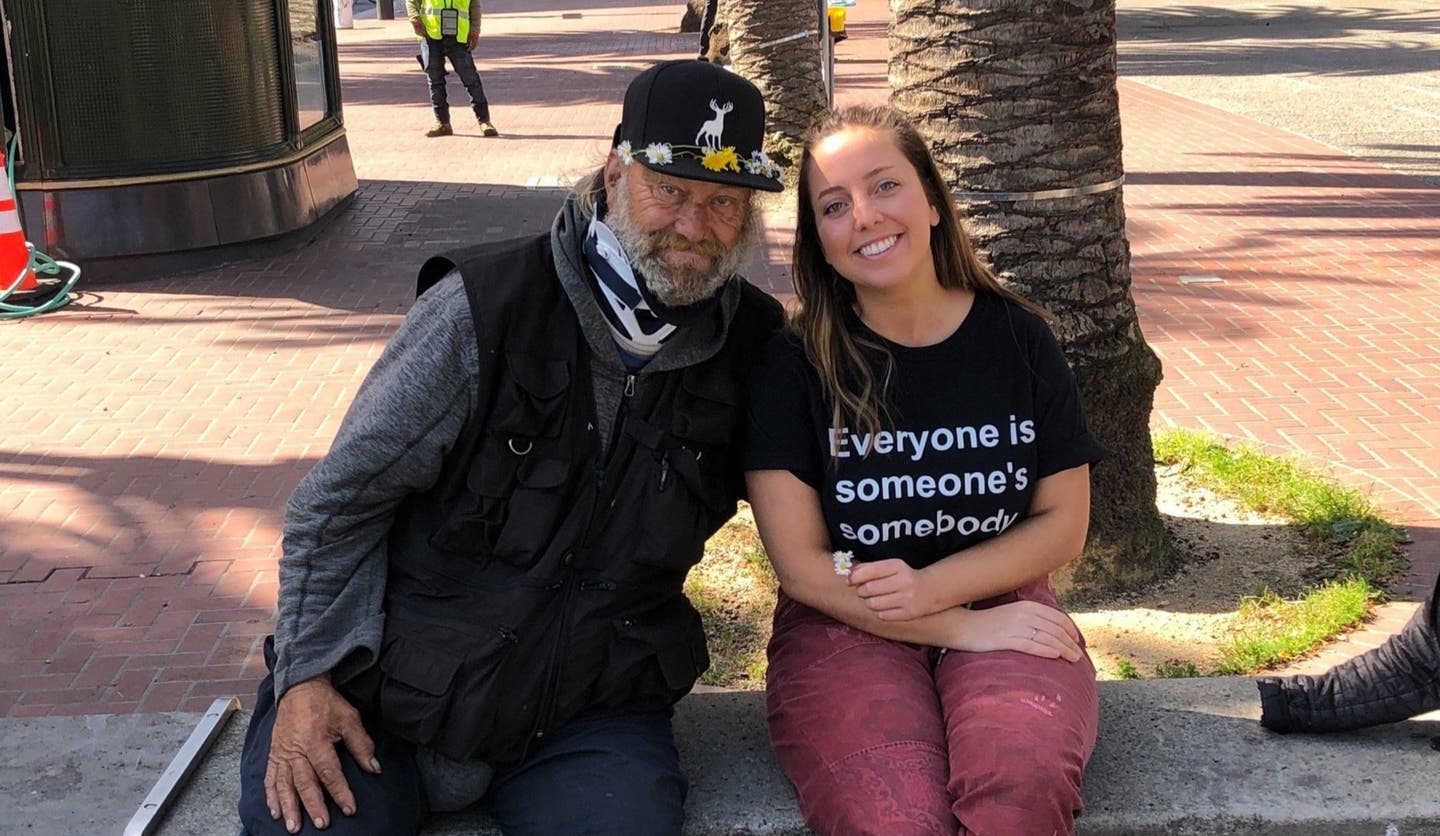Basic Monthly Income and Social Support Transforms Lives of the Homeless, Study Finds
This trial is aimed at investigating the impact of a basic income and social support intervention on the lives of 103 homeless individuals

[Dec. 17, 2023: JD Shavit, The Brighter Side of News]
From strangers to friends, meet our San Francisco General Manager, Nelly and one of our unhoused friends, Marty. (CREDIT: Miracle Messages)
In a groundbreaking effort to combat homelessness in Los Angeles County and the San Francisco Bay Area, the Center for Homelessness, Housing, and Health Equity Research at the University of Southern California has unveiled an interim report on the initial six months of a randomized controlled trial.
This trial is aimed at investigating the impact of a basic income and social support intervention on the lives of 103 individuals experiencing homelessness. The findings have offered a glimmer of hope, indicating that financial stability and social connections may be key to addressing the homelessness crisis.
The research, known as the Miracle Money study, is administered through the nonprofit organization Miracle Messages, which specializes in helping homeless individuals rebuild their social support networks and regain financial security. The program represents an expansion of a previous informal pilot initiative conducted by Miracle Messages that had already proven successful in assisting participants in escaping homelessness and achieving their basic needs.
At the helm of this ambitious one-year study is Professor Ben Henwood, the Frances L. and Albert G. Feldman Professor of Social Policy and Health at the USC Suzanne Dworak-Peck School of Social Work. He also serves as the director of the Center for Homelessness, Housing, and Health Equity Research.
Related Stories
The Miracle Money study was meticulously designed to assess whether the outcomes of the earlier pilot program could be replicated on a larger scale, employing a controlled group for comparison.
Henwood articulated the research's core mission, stating, "One of the aims is to scientifically examine the impact that reducing financial and relational poverty can have on creating long-term solutions to homelessness. People have different needs, and we're empowering them to focus on what is going to help them individually."
The interim report sheds light on two pivotal discoveries made during the initial six months of the Miracle Money study. The first finding suggests that participants receiving $750 per month experienced a significant reduction in their time spent unsheltered. This contrasts markedly with those relying solely on the conventional services available to the homeless population.
These findings are particularly noteworthy because they indicate that financial support, delivered through the Miracle Money program, may not only alleviate homelessness but also enable recipients to fulfill their basic needs more readily. As this experiment unfolds, it may provide valuable insights into the potential for basic income initiatives to transform lives on a broader scale.
The report offers a comprehensive analysis of the progress made by the first 69 participants of the Miracle Money program who received monthly income. It meticulously examines how these individuals allocated the funds they received and quantifies a statistically significant decline in the proportion of time spent unsheltered. This figure plummeted from an initial 30% at the commencement of the trial to under 12% after six months of participation.
In comparison, the report also evaluates the outcomes of the 86 people in the control group who continued to rely on traditional homeless services. The stark contrast in results emphasizes the promise of the Miracle Money approach in addressing the homelessness crisis.
Kevin F. Adler, the founder and CEO of Miracle Messages, underscores the multifaceted nature of poverty among the homeless population, stating, "Poverty is poverty, but relational poverty is also poverty. A unique aspect of Miracle Money is that, in addition to addressing financial insecurity through the monthly payments, it also focuses on the lack of connection and 'otherizing' that people experiencing homelessness often face, which makes exiting homelessness all the more difficult."
Indeed, the Miracle Money program takes a holistic approach to tackling homelessness. Participants not only receive guaranteed income payments but are also paired with community volunteers, known as "phone buddies," who provide essential social support through weekly phone calls and text messages. This social component of the study aims to investigate the various physical and social factors intertwined with the experience of homelessness, transcending the mere provision of shelter.
Funding for the groundbreaking Miracle Money study has been generously provided by several notable sources, including Google.org, the USC Homeless Policy Research Institute, Scott Layne, Kimberly Lynch, and numerous other individuals and foundations committed to eradicating homelessness.
The preliminary findings are encouraging, and as the study progresses, they may pave the way for more comprehensive, compassionate approaches to combating homelessness on a larger scale. The Miracle Money initiative stands as a testament to the power of basic income and social support in transforming the lives of the most vulnerable members of our communities.
For more good news stories check out our Good News section at The Brighter Side of News.
Note: Materials provided above by The Brighter Side of News. Content may be edited for style and length.
Like these kind of feel good stories? Get the Brighter Side of News' newsletter.
Tags: #Good_News, #Police, #Kindness, #Compassion, #Global_Good_News, #Helping_Hand, #Grocery_Store, #The_Brighter_Side_of_News



